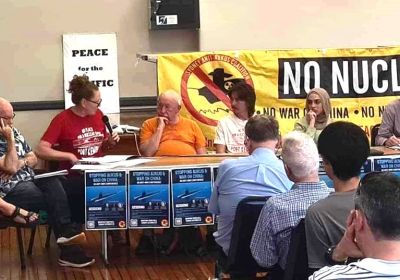
The Australia-United States military alliance and the complexities of building an anti-war movement were discussed at the Sydney Anti-AUKUS Coalition conference. Jim McIlroy reports.

The Australia-United States military alliance and the complexities of building an anti-war movement were discussed at the Sydney Anti-AUKUS Coalition conference. Jim McIlroy reports.
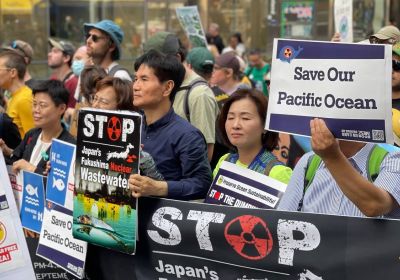
Ahead of the United Nations Sustainable Development Goals Summit on September 18–19, thousands of people in 16 cities across 8 countries gathered to call on the UN and governments to stop Japan's discharge of nuclear waste into the Pacific Ocean, reports Kerry Smith.
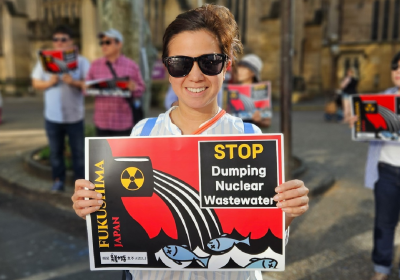
Katti Jisuk Seo, a young Korean-German woman, told a Sydney protest against Japan's dumping of radioactive contaminated wastewater that the danger posed to marine life and the food chain is unacceptable, reports Peter Boyle.
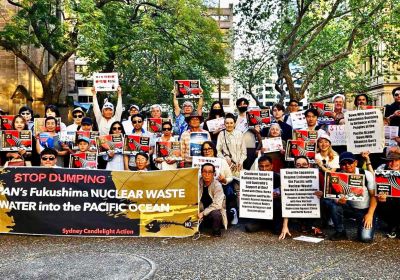
Protesters took a stand against Japan's dumping of Fukushima’s nuclear waste into the Pacific Ocean and called on Australia to do more. Jim McIlroy reports.
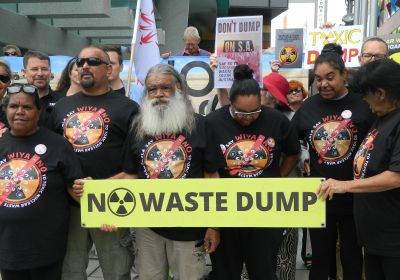
Jason Bilney, Chair of the Barngarla Determination Aboriginal Corporation that led the fight to stop the radioactive dump, described the judge’s finding as a “victory for all First Nations people”. Renfrey Clarke reports.

Sign on to this open letter to Prime Minister Scott Morrison and defence minister Peter Dutton, initiated by several peace groups.

Opponents of the federal push for a national nuclear waste dump near Kimba, South Australia, argue it is unnecessary and dangerous, writes Renfrey Clarke.
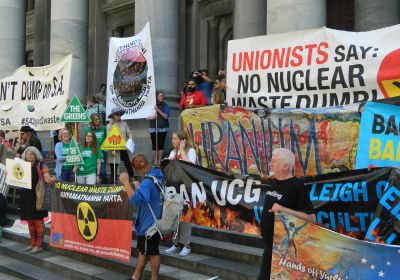
Close to 1000 people gathered outside Parliament House in Adelaide on November 3 to protest against federal government plans to build a national radioactive waste dump in South Australia.
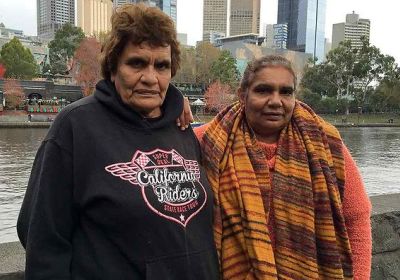
A nuclear waste facility site is on the cards for South Australia. But the majority of people have come out strongly against what they see as a natural disaster coming their way.